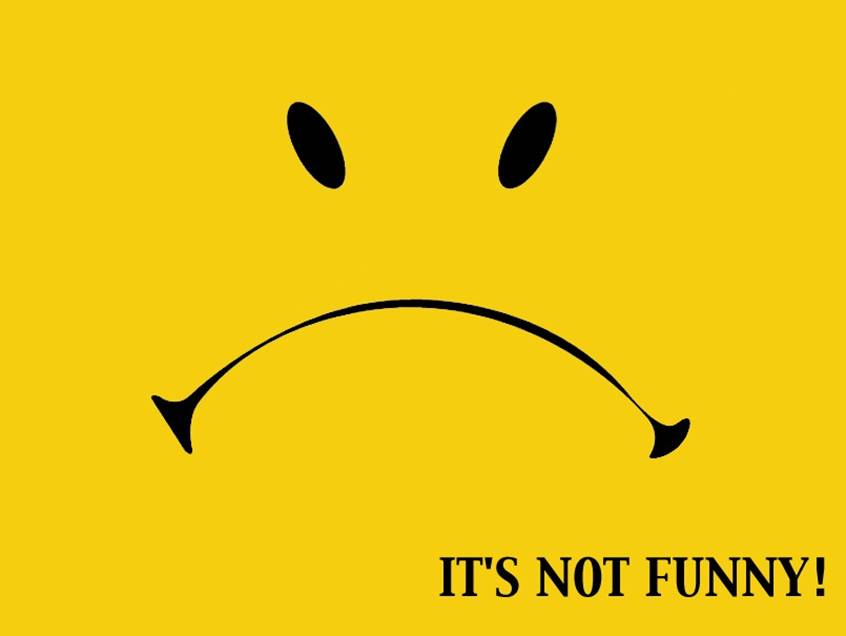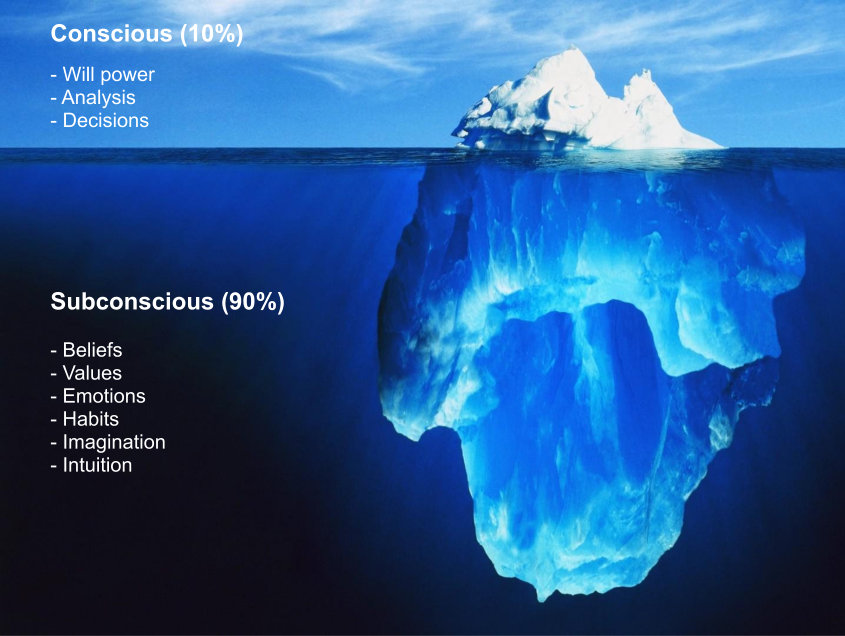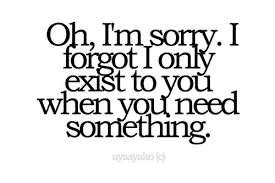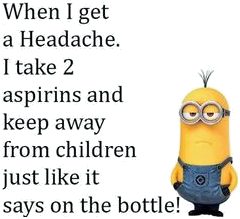
When people ask me to summarize my studies, I say they were all about how the brain works. The first four years focused on how to use this knowledge to stimulate learning. Later on, I learned how to work with the subconscious mind to avoid misery and have more success and more happiness.
Learning about the brain is a never-ending quest. There is much research in the world about the brain and its functions in health, in success, in relationships, in learning and in everyday life. Over the years, I have tried to share my learning about the brain and its functions through this blog, especially in relation to parenting and education.
Why parenting and education? Because these two areas are very close to my heart. Since you are reading this, you probably care about them too.
Today, I would like to share some insight that is very important in parenting and in education. I want to tell you how the conscious and the subconscious minds work. Specifically, I want to tell you about how the subconscious mind deals with humor.
Conscious and Subconscious: Captain and Crew
Think of human beings as ships sailing on the ocean. Each of these ships has a captain and a crew. The captain sets the course and the crew members make the ship function. Our conscious mind is our captain and our subconscious mind is our crew. Research shows that the conscious mind is responsible for 10% of our actions and the subconscious mind is responsible for 90% of them.
From birth, the crew accumulates experience that we are not aware of at all. These experiences are stored as fuel with the way we perceived them at the time of the experience. For example, if our parents did not give us something we wanted and we hated them for it, we will remember the incident with the feeling of hatred. Even if later on, when we grow up, we realize that their decision was justified and that we did not really hate them, we only expressed anger, that memory will remain linked with hatred.
Throughout life, our stored experiences control many of our actions and emotions, even if we do not realize how or why.
Yes, I know it is hard to accept and hard to believe that we do not make decisions consciously, but many parts of our thinking are outside of our awareness. Examples of your subconscious taking control include procrastinating, drinking too much, forgetting your lines as soon as you walk on stage and hitting your child in anger.

One type of memories that goes straight into the subconscious is humor. Children do not have strong emotional stamina and their conscious mind is not yet developed, so using humor with them can backfire.
Why?
Because our subconscious has no sense of humor.
The basis of humor is double meaning. Think about any of the jokes you know. They are only funny when people understand the double meaning in them.
Have you ever heard a joke and asked yourself, “What was so funny about it?” It is very common to feel like this when you are a migrant and you understand the language, but you lack the cultural context to understand the double meaning straight away (you may get it later than others).
Well, when kids are young, most of the time, they say, “What was so funny about it?” because they do not have the capacity to understand the double meaning (quickly). Their language vocabulary is too limited, their emotional vocabulary is too limited and their life experience is too limited. Kids are like migrants. They are newcomers into the world.
Animated films are a good example of how this works. They contain layers of presentations, especially when it comes to humor. There is the simple humor that a 4-year-old would understand, there is the 9-year-old humor and there are adult references well above any kid’s level of understanding. Kids take only the direct meaning from the adult jokes and do not laugh at them.
Sarcasm is not humor
 Many parents confuse making fun of their kids with humor. They want to say something judgmental about their kids and they hide it behind humor, usually in a form of sarcasm.
Many parents confuse making fun of their kids with humor. They want to say something judgmental about their kids and they hide it behind humor, usually in a form of sarcasm.
Sarcasm is a statement of frustration and/or disappointment that we are hiding as humor by saying the opposite. Here are some examples:
- A kid does something that the parent thinks is stupid and the parent says, “Well, that was real smart”. The child hears “smart”, while the intonation and the body language say “stupid”.
- A child forgets something and the parent says, “Lucky your head is attached to your shoulders”. The child hears, “you are lucky”, and the disappointed tone of voice says, “you have done something wrong”.
- A kid asks the parent to buy something and the parent says, “I work all day just to fulfill your wishes”. Again, the child hears, “I work all day for you”, and the tone says, “Not!”
- A kid is angry and says, “You don’t love me. You are not my mother”, and the parent says, “That’s right. We found you near the dumpster”. The child already feels upset, and gets a double dose of bad feeling from the words and from the delivery, while completely missing the joke.
- A child behaves in a way that upsets the parent and the parent says, “I am not sure you are my child. They must have swapped you in hospital”. Most children, especially young ones, take this at face value and feel scared and uncertain.
No parent means to hurt the child. To the parent, it was a joke or an expression of discomfort in a funny way. But to the child, it is not funny. Humor is only funny if both sides laugh. If somebody is not laughing, it is not funny.

It is very hard for me to say that the parents were frustrated when they said, “If you sing, it will start to rain”. Or that they were trying to be funny but did not understand that the subconscious has no sense of humor. Singing is now carved so deeply in our subconscious mind as a painful experience that attempting to sing is too risky. The captain says, ” We like singing. Let’s sing”, and the crew says, “No way! It hurts too much”. We feel confused. We want to and we cannot, and we do not know how to settle this conflict inside of us.
Think of anything you want to do and cannot do. If you dig deep enough, you will find something that happened to you during childhood that your little inexperienced mind distorted into a rule: “I’m not good enough”, “I can’t”, “I’m useless”, “No one cares”, “It’s not worth it”, “I have no chance”, “It’s impossible”, “It’s always my fault”, etc. All these things originated during childhood and some of them were supposed to be funny.
Humor is fun for everyone
Humor is a great thing when both sides understand it the same way. Gal and I go to The Comedy Club several times a year. We know that the comedians will use swearwords and although we do not like it, we both put up with it to enjoy a night of laughter.
On the other hand, friends of ours find swearwords offensive and they do not come with us. For them, using swearwords is not funny at all. For something to be funny, it needs to be fun for everyone. If the humor is one-sided, it is not fun and not funny. It is making fun of the other and mocking the other for your own amusement. In fact, it is a form of bullying.
Educating children is important and using humor can be a great way to ease tension. As a parent, if you want to make fun of someone, make fun of yourself, because you know what you mean and you can take responsibility for your own thoughts. With children, avoid sarcasm and avoid making fun of them. Do not risk them installing this funny things you have said in their subconscious and using it to fuel their ship going in the wrong direction.
Here is your rule to recognizing the bad jokes and getting them out of your communication with your child:
If you are the only one laughing and thinking that something you have said is witty and funny, stop! It is not! It is a bad joke, so do not use it anymore.
If you and your child are both laughing about what you have said, then it is funny. Keep it up as a way to bond with your child.
Happy parenting,
Ronit











